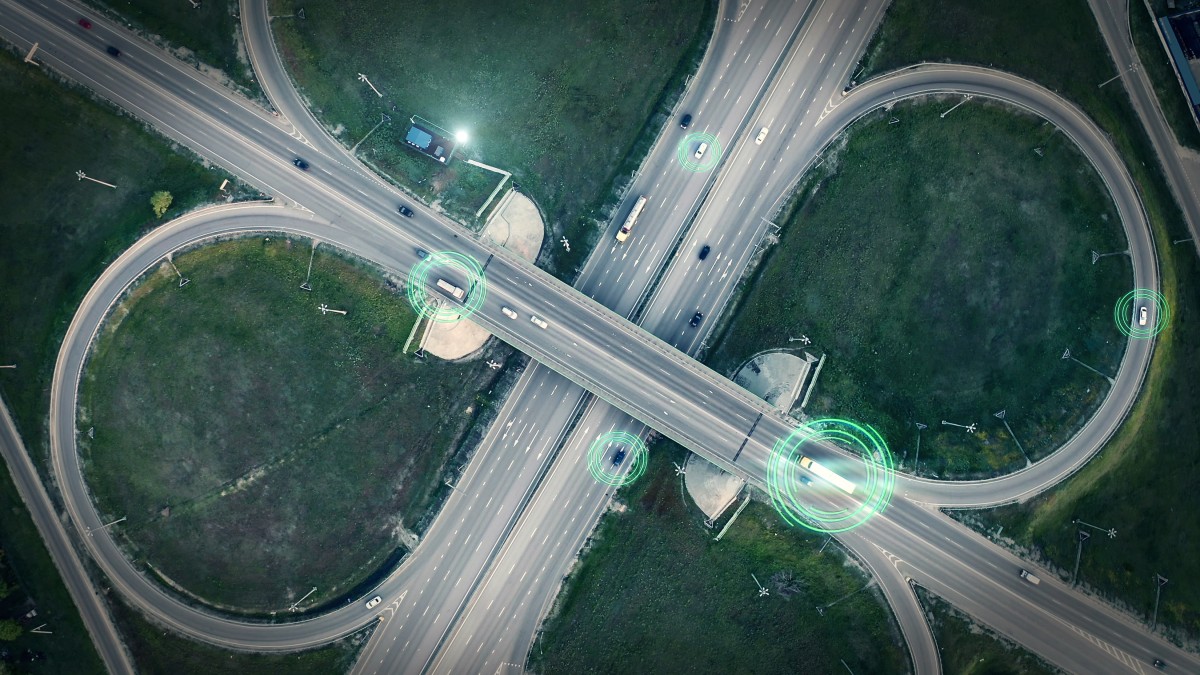Using global positioning system (GPS) technology as part of your fleet management toolkit is a cost-effective way to make your organization and fleet operations more efficient.
However, choosing the right GPS fleet tracking devices for your organization’s asset or vehicle tracking system can be challenging because there are so many options available on the market today. As the use of this technology by fleet managers continues to increase across various industries, it’s imperative to ensure that you’re using the right type of devices for your organization’s fleet management needs.
After all, utilizing a GPS tracking device that doesn’t best suit your needs can turn into a hindrance rather than an effective solution. Consider these tips when investigating different GPS tracking solutions for your fleet and your operational needs!
Quick Links:
- What Types of GPS Tracking Devices Exist?
- 5 Tips for Choosing the Right GPS Tracking Device for Your Needs
What Types of GPS Tracking Devices Exist?
GPS tracking devices have come a long way from old-time spy movies that used devices the size of a brick with a bright blinking light on them. In today’s world, GPS tracking devices come in a multitude of types:
Battery-Powered GPS Tracking Devices
If you need a portable GPS tracking device that provides frequent updates for short-term tracking, you may want to consider a battery-powered unit. Battery-powered units can run on either rechargeable batteries or even a few alkaline batteries. With settings that can be customized to fit your needs, these devices typically can be set to provide more or less frequent location updates to conserve battery life.
Hard-Wired GPS Fleet Tracking Devices
If you need to track a vehicle or asset for an extended period, it may be best to go with a hard-wired fleet tracking device. A hard-wired fleet tracker is one that pulls its power from your vehicle’s power system, which means that no battery is required. This ensures that the device won’t lose power unless your vehicle or asset does, which is a different situation in and of itself. Plus, you can be automatically alerted to low battery or power levels with GPS tracking devices so that you’re prepared to schedule appropriate maintenance for your property.
Hybrid GPS Fleet Tracking Devices
Some asset-powered GPS fleet tracking devices offer the best of both worlds in a hybrid model. For example, the TTU-2800 comes equipped with an internal rechargeable battery to provide a little versatility for your fleet management needs. It’s a GPS fleet tracking device that is beneficial for assets that are continually in transition. If you need to track the locations of cargo trailers or flatbeds that are disconnected from a truck for days, weeks, or months, then a hybrid GPS tracking device might be the best option for you.
Solar-Powered GPS Fleet Tracking Devices
A solar-based fleet tracking device is another great option for assets that can have an externally-mounted fleet tracking device. The XT-4970, for example, is a solar-powered unit that draws its power from the sun using a highly efficient solar cell. It’s also highly configurable regarding its reporting capabilities, which helps to extend its battery life for long-term tracking. With its over-the-air application firmware upgrade, you don't have to worry about your fleet tracking device firmware becoming out of date or vulnerable.

5 Tips for Choosing the Right GPS Tracking Device for Your Needs
Let’s dive into a few factors you should consider when choosing the right GPS tracker for your operational needs:
Know What You Want to Track with GPS Fleet Tracking
The first step is to decide what you’re tracking. Are you trying to track the locations of small vehicles, such as rental cars? Are you trying to track and monitor a fleet of big rigs and semis for long-haul freights? Are you monitoring the conditions of construction equipment or even oil and gas fleet vehicles? Or, are you trying to track rental equipment such as portable generators or even refrigerated trailers? All of these fleet management needs require different fleet tracking device functionalities.
Or, if you need to track something different such as a person or a healthcare asset in a wet or moist environment, the GL300VC may be a good option because it’s water-resistant and features a thumb-sized button that enables the user to send out emergency alerts and their location using geofencing. It also is highly versatile because it can use either battery power or an external DC power supply.
Choose Between Real-Time Tracking or Periodic Updates
Real-time tracking for fleet management is an incredible advantage for many organizations. A real-time GPS tracker enables you to know precisely where your vehicle or asset is located at any time 24 hours a day, seven days a week. With intermittent updates, the devices will periodically transmit new locations as an asset moves.
Real-time tracking is particularly useful for law enforcement, emergency management, and other local or municipal government agencies. When you equip fleet vehicles with GPS tracking devices and use a fleet management software tool like geofencing to track them, you can receive a notification every time a tagged vehicle enters or leaves specific areas.
If, on the other hand, your fleet management needs require battery life more than continuous location updates, the TTU-700 is a solution to consider. This fleet tracking device is designed for long-term tracking, communicating periodic updates rather than providing real-time tracking; this particular device can last about seven years when configured to only send one daily location update per day.
Additionally, some GPS tracking devices are equipped with motion sensors, which helps to minimize power usage when the asset or vehicle is stationary or deactivated.
Decide If You Need Short-Term or Long-Term Tracking
Are you looking for something that would be ideal for tracking a few days or weeks, or are you looking for a GPS fleet tracking device that can track for months or years at a time? Your answer will help you to determine the type of power supply you will need for your GPS tracking needs.
Do You Need to Monitor the Condition of the Vehicle, Equipment, or Cargo?
Modern, high-quality GPS fleet trackers for fleet management allow you to track more than just the location of your vehicles or assets. Do you need to stay informed and have access to reports about how your drivers are performing concerning driver safety? Is there a need to remotely monitor the cold interior of a refrigerated truck’s cargo hold? Or, do you need to keep an eye on and monitor the performance of your vehicles?
Devices like the LMU-2600 enable you to monitor hard braking, rapid acceleration, and other noteworthy driver behaviors using its three-axis accelerometer. Another model, the LMU-3000, measures only 1.5” x 2.5” x 0.98”, and packs a lot of punch for its small size. The fleet tracking device plugs directly into your vehicle’s onboard diagnostics (OBD) interface and can detect and monitor driver behaviors and vehicle impacts.

Choose Between Proprietary and Non-Proprietary Technology
Many companies offer a wide array of GPS tracking devices for fleet management. However, what they may not bother to tell you is that their devices are proprietary, meaning that their devices can only be used with their specific, branded software. This results in hundreds or thousands of dollars you spend on GPS fleet tracking devices that will only be useful as long as you keep using their software. Make sure you know what you’re signing up for when shopping for a GPS tracking solution for your fleet and operational needs.
Partner with Rastrac for Your Comprehensive GPS Tracking Solution!
Since 1993, Rastrac has been a leader in the fleet and asset tracking field. Our devices and comprehensive tracking and management solutions empower you to maximize productivity without maxing out your budget.
Contact us today to speak with an expert about a solution suited for your needs!





